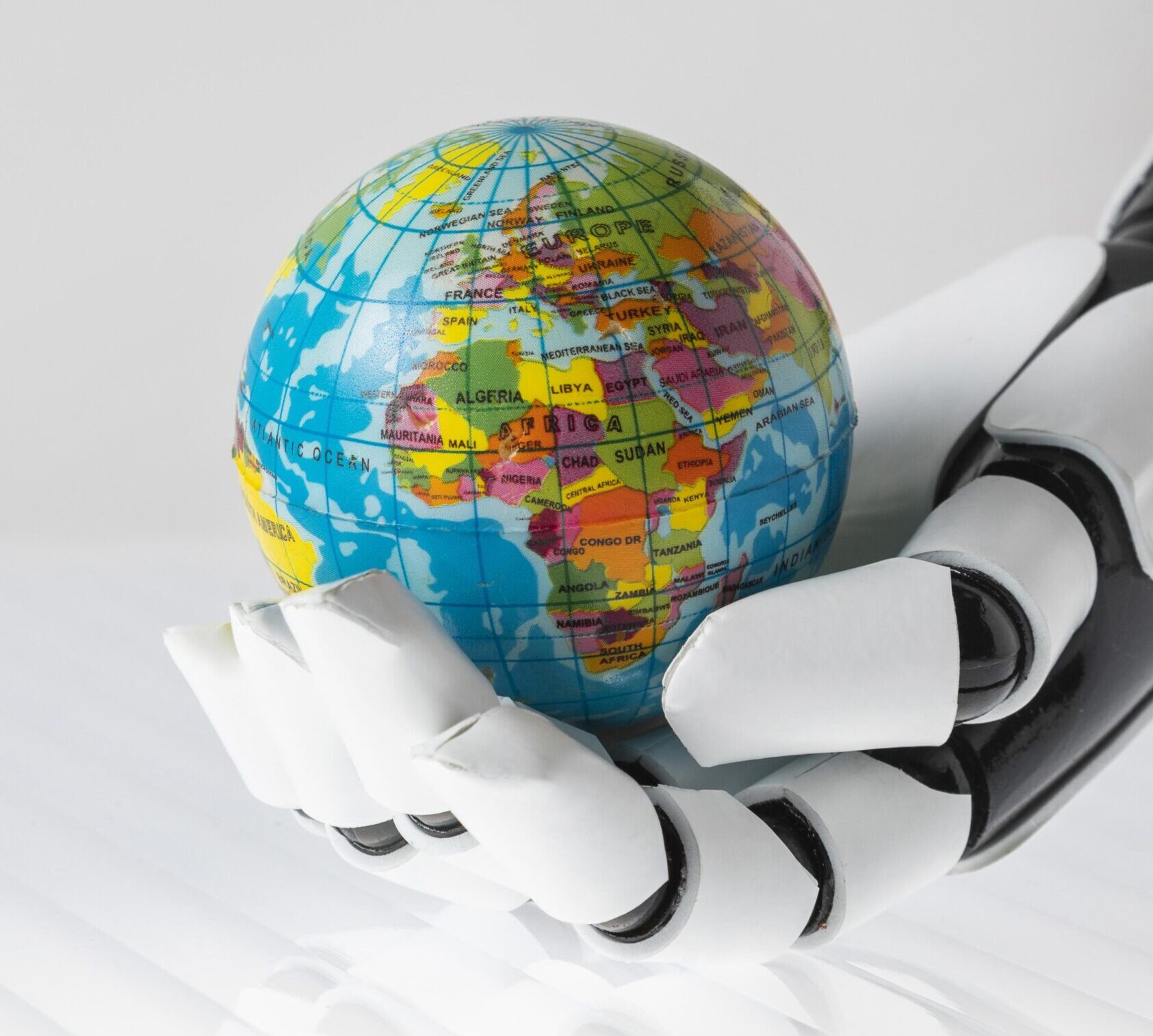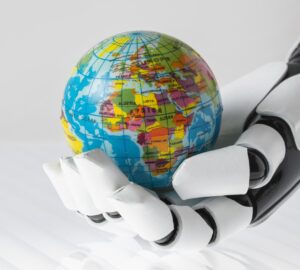
How Artificial Intelligence is Changing the World

Introduction:
Artificial Intelligence (AI) stands as the technological linchpin shaping our future. Its impact spans across various facets of society, touching realms from healthcare to finance, education to business. In this exploration, we delve into real-world examples to illuminate the transformative power of AI, examining how it is reshaping our world and redefining the possibilities that lie ahead.
I. AI in Healthcare:
In healthcare, AI is not merely a buzzword; it is a lifesaver. Take the example of IBM Watson for Oncology, an AI-powered diagnostic tool. By analyzing vast datasets of medical literature, clinical trial data, and patient records, Watson assists oncologists in making more informed decisions about cancer treatment plans. This enables personalized and efficient care, illustrating how AI contributes to the precision medicine revolution.
Another noteworthy example is the application of AI in drug discovery. BenevolentAI, a UK-based company, employs AI algorithms to mine biomedical data and identify potential drug candidates. By expediting the research process, AI not only accelerates the development of new treatments but also holds the promise of uncovering solutions for diseases that have eluded traditional approaches.
II. AI in Business and Industry:
In the business realm, AI’s impact is palpable through automation and data-driven decision-making. Amazon’s use of AI-powered robots in their fulfillment centers is a testament to the transformative effects of automation. These robots efficiently navigate warehouses, reducing the time it takes to pick, pack, and ship items. As a result, Amazon can meet customer demands with unprecedented speed and accuracy.
Data-driven decision-making is exemplified by Salesforce’s Einstein Analytics. This AI-driven platform analyzes vast datasets, providing actionable insights for businesses. For instance, a retail company might use Einstein Analytics to identify customer preferences, optimize inventory, and tailor marketing strategies. This convergence of AI and data is a game-changer, empowering businesses to make strategic decisions grounded in comprehensive analysis.
III. AI in Education:
In the education sector, AI is fostering personalized and adaptive learning experiences. Platforms like Khan Academy utilize AI algorithms to tailor learning paths for individual students. For example, if a student excels in certain subjects but struggles in others, the platform adapts, providing more challenging material in areas of strength while offering additional support where needed. This dynamic approach ensures that each student receives a customized educational experience.
Intelligent tutoring systems further illustrate AI’s role in education. Carnegie Learning’s AI-driven tutoring platform gauges a student’s comprehension and tailors lessons accordingly. If a student encounters difficulty with a particular concept, the system provides targeted support, promoting a deeper understanding. Additionally, administrative tasks are streamlined through AI platforms like Blackboard, enabling educators to focus on fostering engaging and collaborative learning environments.
IV. AI in Finance:
The financial sector is witnessing a paradigm shift with the integration of AI. Algorithmic trading, a prime example, leverages AI to analyze market trends and execute trades at speeds unimaginable for human traders. QuantConnect, a platform for algorithmic trading, utilizes AI to optimize trading strategies, adapting to ever-changing market conditions.
Risk management is another domain where AI excels. ZestFinance, a fintech company, employs AI to assess credit risks more accurately. By analyzing a multitude of factors beyond traditional credit scores, AI-driven systems enhance the precision of risk assessments, ultimately benefiting both lenders and borrowers. Furthermore, AI-powered chatbots, such as those implemented by Bank of America, revolutionize customer service by providing instant responses and personalized financial advice.
V. AI and the Job Market:
The integration of AI into industries inevitably prompts questions about its impact on employment. Tesla’s Gigafactories provide a tangible example of automation in manufacturing. While the use of robots reduces the need for manual labor in certain tasks, it concurrently creates new job opportunities in maintenance, oversight of automated systems, and the development of advanced technologies.
In the field of data science, the demand for AI specialists is on the rise. Companies like Google actively seek professionals with expertise in machine learning and artificial intelligence. These specialists play a crucial role in developing and refining AI algorithms, ensuring their effectiveness and ethical use. The job market is evolving, and those with skills in AI-related fields are finding new and exciting opportunities.
VI. AI and Ethics:
As AI becomes increasingly ingrained in our daily lives, ethical considerations become paramount. Microsoft, for example, has taken a proactive approach by developing AI ethics guidelines. These guidelines emphasize transparency, accountability, and fairness in AI systems. By addressing potential biases and ensuring clear communication about how AI systems operate, companies contribute to building trust in AI technologies.
Google’s Responsible AI Practices exemplify a commitment to avoiding bias in algorithms. By incorporating diverse perspectives and continuously refining algorithms to minimize discriminatory outcomes, Google aims to create AI systems that treat individuals fairly and equitably. These initiatives underscore the importance of ongoing efforts to navigate the ethical landscape of AI development responsibly.
VII. Future Trends in AI:
Looking ahead, the future of AI holds exciting prospects. OpenAI, a trailblazer in the field, continues to advance machine learning with models like GPT-4. These models push the boundaries of natural language understanding, opening new frontiers in communication and information processing. As AI integrates with emerging technologies, Meta’s exploration of AI in the metaverse stands out. The potential for AI to create immersive and interactive experiences in virtual worlds has profound implications for entertainment, communication, and beyond.
However, as we embrace these future trends, it is crucial to address challenges and ethical considerations. The responsible development and deployment of AI technologies must remain at the forefront of innovation. Initiatives that prioritize transparency, accountability, and inclusivity will play a pivotal role in shaping a future where AI benefits society as a whole.
VIII. Conclusion:
In conclusion, the transformative power of AI is not confined to theoretical discussions; it is a reality reshaping industries and societies. From personalized healthcare to data-driven business strategies, adaptive education to innovative financial services, AI is a driving force behind the evolution of our world. As we navigate this era of unprecedented technological innovation, it is crucial to prioritize responsible AI development. By doing so, we ensure that the benefits of AI are widespread, equitable, and sustainable, and that no one is left behind in the pursuit of a future shaped by the limitless possibilities of artificial intelligence.



Average Rating